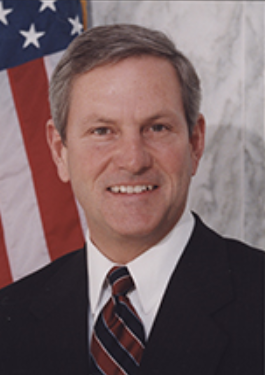Climate change is a growing crisis, and we all have a role to play in combating it. That’s why Congress included a record amount of climate change-related funding in the nearly $400 billion Inflation Reduction Act and why the Biden Administration created the first-ever National Climate Task Force. Those measures represent the right way to work cooperatively on actionable solutions to reduce greenhouse gases.
What’s the wrong way? Climate liability cases that try to shift the responsibility for climate to the courts and that jeopardize the kind of public-private cooperation it will take to make serious headway on climate change. This ineffective approach has the potential to become even more concerning if climate lawsuits are allowed to be heard in tort-friendly state courts instead of federal courts that have consistently dismissed them.
Fortunately, resolution could be on the way. This year, the U.S. Supreme Court is considering to rule on the question of whether these climate liability claims should be governed by federal or state law. To help decide that question, Supreme Court justices last year asked the Solicitor General’s office to weigh in on behalf of the federal government. Solicitor General Elizabeth Prelogar could submit her formal position any day now.
While the plaintiffs believe climate lawsuits should be decided at the state level and not by federal judges, it doesn’t make much sense to do so. After all, climate change is a global challenge that requires broad cooperation and sophisticated analysis. The U.S. Chamber of Commerce expressed this succinctly in a filing in Baltimore’s climate lawsuit, explaining, “Claims seeking to impose liability in a U.S. court for causing such cross-border harms are inherently federal and belong in federal court.”
The Solicitor General’s office historically has concurred. In January 2011, Neal Katyal, acting solicitor general for the Obama administration, argued that those suing utility companies over climate change lacked standing. His reasoning that American climate policy can’t be decided through an “open-ended series of common-law suits in far-flung district courts” is sound, especially given the implications of climate change on national security and economic stability. It would be surprising and unfortunate if the current Solicitor General were to reverse course on her office’s position under President Biden’s former boss.
Opening the door for state courts to hear climate lawsuits could be troublesome, creating attractive opportunities for trial attorneys looking to target nearly any industry. Companies shouldn’t be held liable for providing products that American families and businesses need daily.
The reality is that traditional fossil fuels are essential to improving the human condition and powering modern economies. Of course we should work to integrate low- and zero-carbon energy sources into the mix, but we’ll need traditional fuels for the foreseeable future. The U.S. Energy Information Administration agrees, predicting global consumption of liquid fuels like gasoline and diesel to set new record highs, exceeding 100 million barrels per day, on average, in 2023 for the first time since 2019.
The Biden administration recognizes this, too, noting to some degree that increasing fossil fuel production while balancing climate sensitivities is of national importance. This was reinforced by the Interior Department’s Bureau of Land Management final environmental review of ConocoPhillips’s Willow project, an $8 billion oil and gas development near the coast of the Arctic Ocean in Alaska. The Interior Department’s review named a “preferred alternative” that would allow the company to build three drilling sites and drill more than 200 wells, a significant program that would last three decades.
I’ve expressed before that policymaking in Congress can be messy, taking time, careful deliberation and requiring compromise. We’ll need energy producers and federal and state leaders working together on the collaborative solutions that will help us win on climate change. Climate lawsuits aren’t the answer. They’re especially ill-suited for state court judges who are oblivious to recognizing this important balancing of priorities between energy security and responsible climate solutions at the national level. Solicitor General Prelogar has a chance to send that same message. Let’s hope she does.
Baron Hill served as the representative for Indiana’s 9th congressional district from 1999–2005 and 2007–2011, and was a senior member on the House Energy and Commerce Committee.
